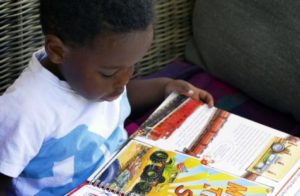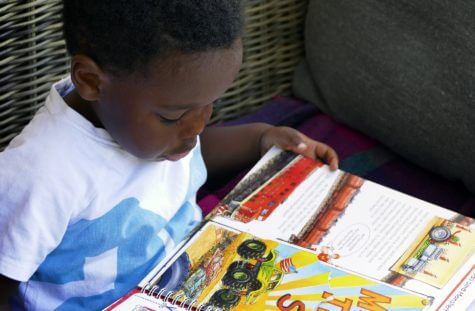WEST LAFAYETTE, Ind. — If you want your preschooler’s vocabulary to improve, try teaching him or her a little bit of arithmetic, a new study finds.
Researchers at Purdue University in Indiana examined the math and language skills of 116 preschool children, aged three to five, over an entire academic year, hoping to see how the reported at-home efforts of parents helped fuel a child’s improvement.

Children who were introduced to math-related skills outside of school, regardless of the type of exposure, were more likely to excel in activities involving language arts, the researchers found.
“Exposure to basic numbers and math concepts at home were predictive, even more so than storybook reading or other literacy-rich interactions, of improving preschool children’s general vocabulary,” says study author and leader Amy Napoli in a media release.
“And one of the reasons we think this could be is the dialogue that happens when parents are teaching their children about math and asking questions about values and comparisons, which helps these young children improve their oral language skills,” adds Napoli, a doctoral student in the school’s Department of Human Development and Family Studies.
One of the best ways to foster math learning at home is by reviewing simple concepts such as counting, quantities, and numerical comparisons, the researchers explain.
The more that these concepts can be applied to real-life situations, the better (e.g., saying “this snack has three cookies” would be more effective than saying “this snack has cookies.”)
“This focus on math typically isn’t happening at home, but this shows that when parents do include math concepts it can make a difference,” notes Napoli. “When working with families, there is a math-related anxiety aspect, and that is probably why more parents focus on literacy than on math. But, if you can count, then you can teach something to your child.”
While the relationship between extracurricular math instruction and improved verbal ability remains one of correlation, the researchers hope to see whether further research will also reveal a causal link.
“It’s never too early to talk about numbers and quantities,” says David Purpura, the study’s senior author and an assistant professor in the department. “One of the first words young children learn is ‘more.’”
The study’s findings are published in the Feb. 2018 edition of the Journal of Experimental Child Psychology.

Teaching kids at home is an excellent idea except that it could draw interference from authorities operating on whatever educational/psychological fad is prevalent among them and the policy of keeping kids as ignorant as possible till they can be indoctrinated.